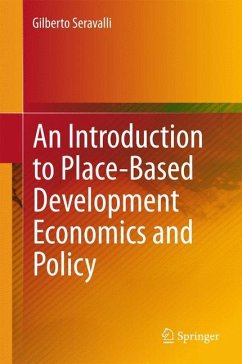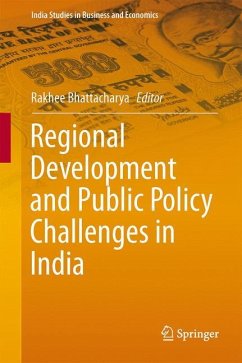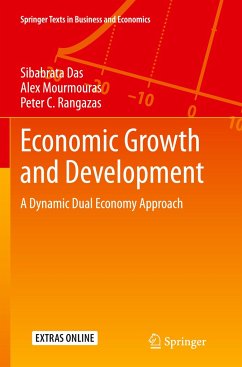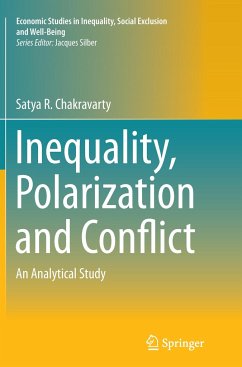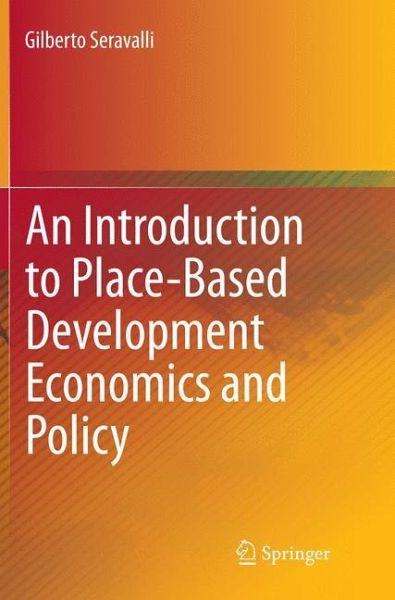
An Introduction to Place-Based Development Economics and Policy
Versandkostenfrei!
Versandfertig in 6-10 Tagen
38,99 €
inkl. MwSt.
Weitere Ausgaben:

PAYBACK Punkte
19 °P sammeln!
This book introduces the reader to local development economics and policy, with a special focus on the place-based paradigm that covers its justification, its difficulties and the types of public intervention that it suggests. The starting point for the analysis is that economic development in lagging places is not to be expected as the result of a mechanism of automatic convergence between backward and advanced regions and that, therefore, the most appropriate development policy is not to maximize competition among all agents in all sectors and places. The failure of the Washington Consensus ...
This book introduces the reader to local development economics and policy, with a special focus on the place-based paradigm that covers its justification, its difficulties and the types of public intervention that it suggests. The starting point for the analysis is that economic development in lagging places is not to be expected as the result of a mechanism of automatic convergence between backward and advanced regions and that, therefore, the most appropriate development policy is not to maximize competition among all agents in all sectors and places. The failure of the Washington Consensus is examined, and the two competing positions to have emerged from this failure - spatially blind interventions and place-based policies - are contrasted. The main shortcoming of spatially blind policies, namely that immobile resources that could trigger or support a development process often remain untapped or "trapped", is emphasized. The limitations of the "big push" state intervention andwage flexibility solutions to this trap are analyzed and the merits of place-based policies that support intervention and can deal with uncertainty, risk and conflict are discussed.





